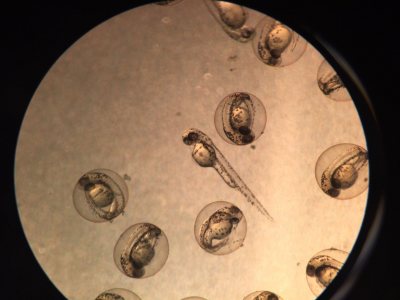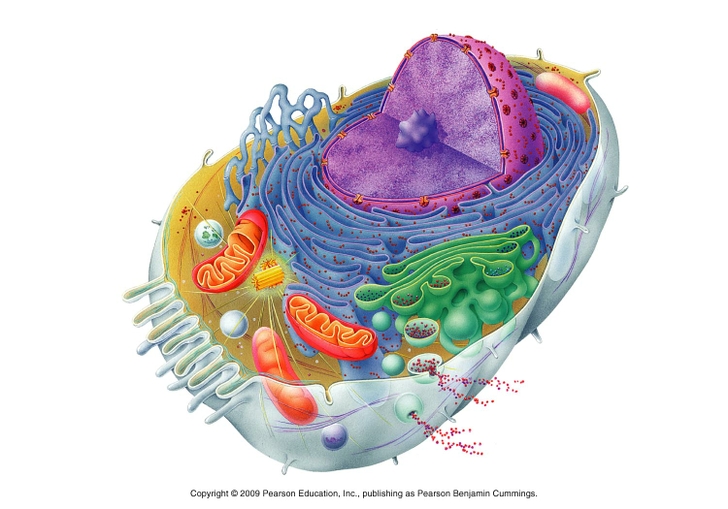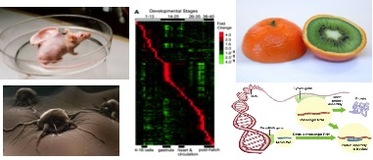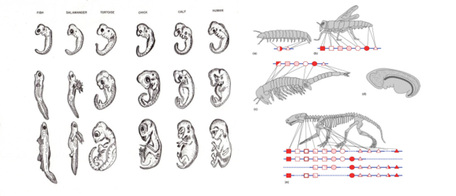Teaching

My Teaching Philosophy
The subjects that I primarily teach at Bates are complicated, detail-orientated, and ever-evolving fields in science. I think that it is important that students learn and apply the major concepts, incorporating details when necessary. To this end, my lecture material provides students with a fundamental basis upon which they can read, understand, interpret and question seminal and cutting edge research. I also stress communication (written and oral) as a fundamental skill for science and life and as such it is practiced throughout the entire semester.
Courses Offered
Bio 195k: Poisons
Offered every other year
 This is a course-based research experience in the biological sciences. Students build research skills through open-ended, authentic experimentation or observations of the natural world. Students gain practice reading scientific literature, formulating and testing hypotheses, analyzing data, interpreting results, communicating in disciplinary style, and working in teams. This version of the course surveys historical and emerging poisons, examines their impact on human health, and tests the behavioral and molecular effects of exposure to poisons using animal models. Intended for students majoring in biology, biochemistry, neuroscience, or environmental studies, or preparing for a health-related career.
This is a course-based research experience in the biological sciences. Students build research skills through open-ended, authentic experimentation or observations of the natural world. Students gain practice reading scientific literature, formulating and testing hypotheses, analyzing data, interpreting results, communicating in disciplinary style, and working in teams. This version of the course surveys historical and emerging poisons, examines their impact on human health, and tests the behavioral and molecular effects of exposure to poisons using animal models. Intended for students majoring in biology, biochemistry, neuroscience, or environmental studies, or preparing for a health-related career.
Bio 202: Cellular Basis of Life
Offered every year
 A view of life at the cellular and molecular levels drawing examples from organisms. Topics include the chemical basis of cellular life, cellular structure and function, cellular division, and the expression of genes in cells. Prerequisite(s): BIO 195 and CHEM 108A. Enrollment limited to 39. Normally offered every semester. [S] [SR] Staff.
A view of life at the cellular and molecular levels drawing examples from organisms. Topics include the chemical basis of cellular life, cellular structure and function, cellular division, and the expression of genes in cells. Prerequisite(s): BIO 195 and CHEM 108A. Enrollment limited to 39. Normally offered every semester. [S] [SR] Staff.
Bio 331: Molecular Biology
Offered every year
 Molecular biology is a discipline that sits at the interface of genome science and biochemistry. Although a relatively young scientific field, molecular biology has been at the forefront of biotechnology over the last two decades, both in terms of genome and transcription manipulation as well as the development of methodology and instrumentation. Fundamentally, the discipline is concerned with the molecular basis of biological activity. In this course we will explore replication, transcription, transcriptional regulation and RNA processing, protein translation and regulation, and the application of molecular biology in translational research (such as crop and animal science, medicine and biotechnology). Most importantly in this course, you will learn and practice essential skills that all scientists use in their daily lives: developing and conducting hypothesis-driven (laboratory) work, reading and interpreting primary literature, crafting and delivering oral presentations of scientific findings, and writing about science.
Molecular biology is a discipline that sits at the interface of genome science and biochemistry. Although a relatively young scientific field, molecular biology has been at the forefront of biotechnology over the last two decades, both in terms of genome and transcription manipulation as well as the development of methodology and instrumentation. Fundamentally, the discipline is concerned with the molecular basis of biological activity. In this course we will explore replication, transcription, transcriptional regulation and RNA processing, protein translation and regulation, and the application of molecular biology in translational research (such as crop and animal science, medicine and biotechnology). Most importantly in this course, you will learn and practice essential skills that all scientists use in their daily lives: developing and conducting hypothesis-driven (laboratory) work, reading and interpreting primary literature, crafting and delivering oral presentations of scientific findings, and writing about science.
Bio 328: Developmental Biology
Offered every year
 Developmental biology is a dynamic field that addresses questions related to how organisms come into being and grow. This course will introduce you to developmental biology with a particular emphasis on the molecular basis for developmental events. The course focuses on the mechanisms involved in making cells that are different from one another (cell differentiation) and the associated mechanisms by which patterns are created (morphogenesis). In the lab, you will explore the phenomenon of development in several of the most prominently utilized model organisms. The lab culminates in an independent project utilizing the zebrafish model system.
Developmental biology is a dynamic field that addresses questions related to how organisms come into being and grow. This course will introduce you to developmental biology with a particular emphasis on the molecular basis for developmental events. The course focuses on the mechanisms involved in making cells that are different from one another (cell differentiation) and the associated mechanisms by which patterns are created (morphogenesis). In the lab, you will explore the phenomenon of development in several of the most prominently utilized model organisms. The lab culminates in an independent project utilizing the zebrafish model system.